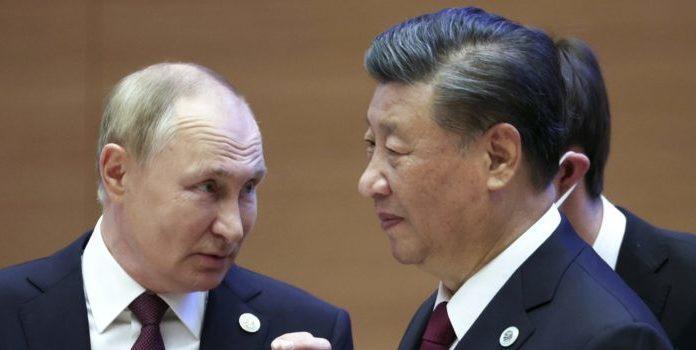(Dmytro “Henry” Aleksandrov, Headline USA) It was revealed that Russia and China want to build a nuclear reactor on the moon to power future settlements.
The construction of the reactor would be part of a mission relying on those technological solutions the two nations intend to master in the latter half of this decade, Yuri Borisov, the CEO of Russia’s equivalent to NASA, Roscosmos, said.
“Today, we are seriously considering a project to deliver to the moon and mount a power reactor there jointly with our Chinese partners somewhere between 2033 and 2035,” he informed the public during a talk at the World Youth Festival in Krasnodar Krai, Russia.
According to Blaze Media, the work on the reactor would be automated on account of radiation.
Borisov also suggested that Russia was working on a “space tugboat,” in addition to a nuclear reactor and an “interplanetary station” on the moon.
“This huge, cyclopean structure that would be able, thanks to a nuclear reactor and high-power turbines… to transport large cargoes from one orbit to another, collect space debris, and engage in many other applications,” he said.
In March 2021, Roscosmos and China National Space Administration signed an agreement to cooperate on the development of an international lunar research station, with China planning to send three missions, Chang’e 6, Chang’e 7 and Chang’e 8 to advance the project, according to Russian state media.
It was also reported that the construction of a nuclear reactor on the moon would be part of a subsequent series of lunar missions.
The initial lunar missions that were scheduled to begin in 2026 and proceed through 2028 would test key technology and set the groundwork for a robotics base where experiments and research could be conducted remotely, the news source added.
Borisov’s remarks were “indicative of warming relations and Chinese willingness to foster a long-term strategic partnership with Russia to posture against and possibly threaten the West,” the ISW, a think tank based in Washington, D.C., stated.
“A strategic space partnership with China suggests that Russia would be unlikely to use this or similar technology against China and that both states would mutually benefit from Russia’s posturing against the West through space and satellite technology,” the think tank added.

